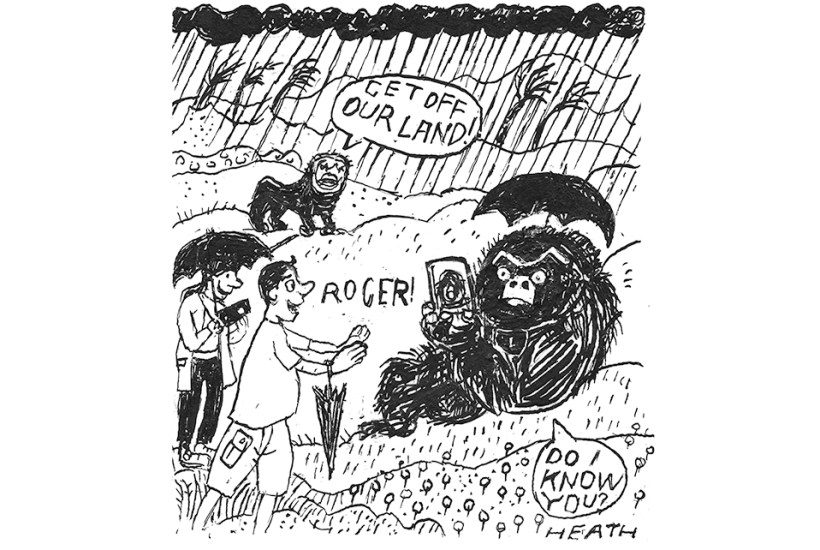Kigali
The Supreme Court’s ruling that sending migrants to a former hostel in Kigali is illegal strikes another hammer blow to the government, not least because Rwanda gets to keep the £140 million that set up the proposed deal in the first place. Never mind what happens now – and this story is far from over – if I were a migrant about to take a small boat to Britain, the prospect of ending up here, where it’s easier to start a business than almost anywhere else in the world, would hardly be a deterrent. The facts are these: Rwanda was a broken country after the 1994 genocide. It had been one of the bloodiest of bloody killing fields, with up to one million people dead and a further two million displaced within 100 days – while the world watched in horror but did nothing. And yet, approaching the 30th inglorious anniversary of that human tragedy, Rwanda is the country many neighbouring African nations look to as some sort of beacon. It has one of the fastest-growing economies in Africa; there is little crime; 92 per cent of the population has medical insurance (at around $8 a year) and the 2022 Corruption Perceptions Index ranked it the fourth least corrupt country on the African continent behind the Seychelles, Botswana and Cabo Verde.
The liberal left doesn’t approve of Kagame for, among other things, the lack of a genuinely free press, the suppression of political opposition and his uninterest in LGBT rights. Homosexuality is legal but gay marriages and changing gender are strictly forbidden. Although, on the subject of gender equality, it is perhaps noteworthy that Rwanda is the first country in the world with a female majority in parliament (61.3 per cent).
Mind you, Kagame’s no orator. I was in Kigali for the grandly titled World Travel and Tourism Council Global Summit, at which the President spoke at the opening session. I got the impression that someone had written his speech for him at breakfast and he hadn’t quite found the time to read it in advance. And I felt sorry for the financier Justin Urquhart Stewart, who was flown over from Britain to give a talk on the global economy, but was cancelled at the last moment, not because he was going to touch on anything sensitive, but because Kagame and his entourage turned up an hour and a half late.
Known as the ‘land of a thousand hills’, Rwanda is a beautiful country, at times not unlike lush Saint Lucia, although there’s a big contrast between the relatively affluent capital, Kigali, and rural villages where many homes still don’t have water and electricity. Traditions persist in those villages. A taxi driver from the eastern province told me he has two sons. ‘That’s wonderful,’ I said. ‘Yes, but a man like me would prefer daughters.’ ‘Why might that be the case?’ ‘Because when my sons marry, I must give a cow to the other family.’
Any trip to Rwanda must include a visit to the Kigali Genocide Memorial. Outside, mass graves entomb some 250,000 victims; inside, an informative but harrowing exhibition walks you through pre-colonial Rwanda, the lead-up to the genocide, the slaughter itself and the aftermath. The last room simply contains photographs of children who perished. I sat in the rose garden for half an hour afterwards and wept.
Some people also cry when they come face to face with Rwanda’s mountain gorillas – and not because it now costs $1,500 per person for the experience. After being handed a stick, you set off in groups of nine, plus a guide and a man or woman with a rifle. In torrential rain, with slippery mud up to our ankles, it was tough going for 90 minutes or so. Halfway up, we were joined by three spotters and told to put on masks. Shortly afterwards, a silverback daddy was sitting placidly alone in a clearing, while the rest of his family was munching away nearby. It was like standing before an inscrutable deity and seemed rude to take pictures – but we took them anyway. Our guide said the gorillas dislike rain. So why, I wondered, do they not shelter from it? ‘We don’t know,’ he said. ‘It’s just the way it is.’ You get to spend an hour with the gorillas before coming back down the mountain. My abiding memory is how dismissive they were of us. They do their thing; we do ours. There’s something strangely therapeutic about being made to feel so irrelevant.
Got something to add? Join the discussion and comment below.
Get 10 issues for just $10
Subscribe to The Spectator Australia today for the next 10 magazine issues, plus full online access, for just $10.
You might disagree with half of it, but you’ll enjoy reading all of it. Try your first month for free, then just $2 a week for the remainder of your first year.








Comments
Don't miss out
Join the conversation with other Spectator Australia readers. Subscribe to leave a comment.
SUBSCRIBEAlready a subscriber? Log in